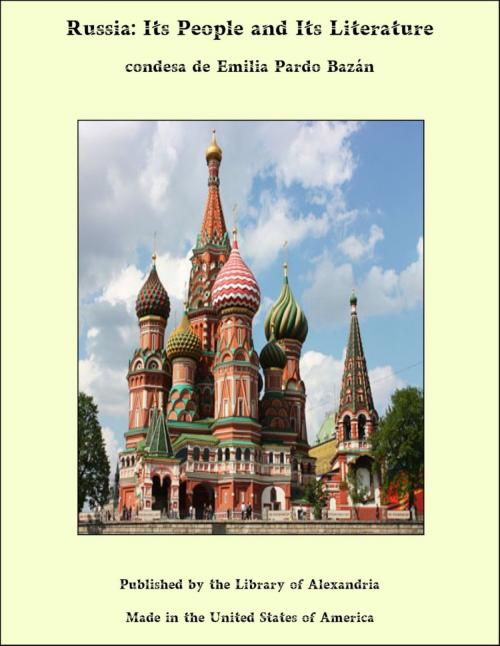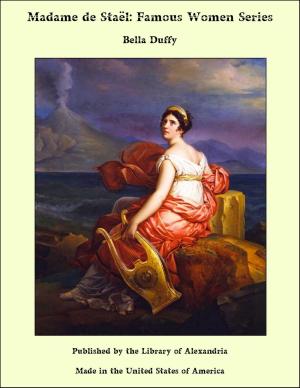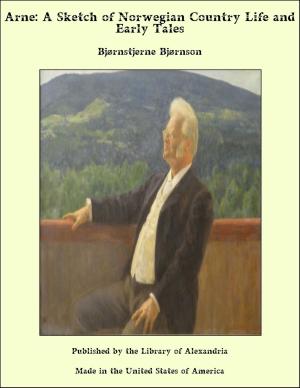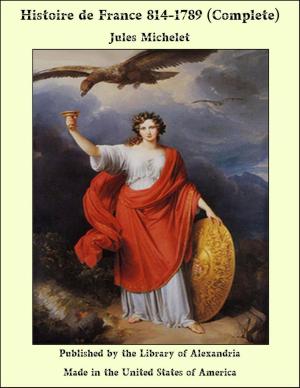Russia: Its People and Its Literature
Nonfiction, Religion & Spirituality, New Age, History, Fiction & Literature| Author: | condesa de Emilia Pardo Bazán | ISBN: | 9781465601995 |
| Publisher: | Library of Alexandria | Publication: | March 8, 2015 |
| Imprint: | Language: | English |
| Author: | condesa de Emilia Pardo Bazán |
| ISBN: | 9781465601995 |
| Publisher: | Library of Alexandria |
| Publication: | March 8, 2015 |
| Imprint: | |
| Language: | English |
Emilia Pardo Bazán, the author of the following critical survey of Russian literature, is a Spanish woman of well-known literary attainments as well as wealth and position. Her life has been spent in association with men of mark, both during frequent sojourns at Madrid and at home in Galicia, "the Switzerland of Spain," from which province her father was a deputy to Cortes. Books and libraries were almost her only pleasures in childhood, as she was allowed few companions, and she says she could never apply herself to music. By the time she was fourteen she had read widely in history, sciences, poetry, and fiction, excepting the works of the French romanticists, Dumas, George Sand, and Victor Hugo, which were forbidden fruit and were finally obtained and enjoyed as such. At sixteen she married and went to live in Madrid, where, amid the gayeties of the capital, her love for literature suffered a long eclipse. Her father was obliged, for political reasons, to leave the country after the abdication of Amadeus, and she accompanied him in a long and to her profitable period of wandering, during which she learned French, English, and Italian, in order to read the literatures of those tongues. She also plunged deep into German philosophy, at first out of curiosity, because it was then in vogue; but she confesses a debt of gratitude to it nevertheless. While she was thus absorbed in foreign tongues and literatures, she remained almost entirely ignorant of the new movement in her own land, led by Valera, Galdos, and Alarcon. The prostration which characterized the reign of Isabella II. had been followed by a rejuvenation born of the Revolution of 1868. When this new literature was at last brought to her notice, she read it with delighted surprise, and was immediately struck by something resembling the spirit of Cervantes, Hurtado, and other Spanish writers of old renown. Inspired by the possibility of this heredity, she resolved to try novel-writing herself,—a thought which had never occurred to her when her idea of the novel had been bounded by the romantic limitations of Victor Hugo and his suite.
Emilia Pardo Bazán, the author of the following critical survey of Russian literature, is a Spanish woman of well-known literary attainments as well as wealth and position. Her life has been spent in association with men of mark, both during frequent sojourns at Madrid and at home in Galicia, "the Switzerland of Spain," from which province her father was a deputy to Cortes. Books and libraries were almost her only pleasures in childhood, as she was allowed few companions, and she says she could never apply herself to music. By the time she was fourteen she had read widely in history, sciences, poetry, and fiction, excepting the works of the French romanticists, Dumas, George Sand, and Victor Hugo, which were forbidden fruit and were finally obtained and enjoyed as such. At sixteen she married and went to live in Madrid, where, amid the gayeties of the capital, her love for literature suffered a long eclipse. Her father was obliged, for political reasons, to leave the country after the abdication of Amadeus, and she accompanied him in a long and to her profitable period of wandering, during which she learned French, English, and Italian, in order to read the literatures of those tongues. She also plunged deep into German philosophy, at first out of curiosity, because it was then in vogue; but she confesses a debt of gratitude to it nevertheless. While she was thus absorbed in foreign tongues and literatures, she remained almost entirely ignorant of the new movement in her own land, led by Valera, Galdos, and Alarcon. The prostration which characterized the reign of Isabella II. had been followed by a rejuvenation born of the Revolution of 1868. When this new literature was at last brought to her notice, she read it with delighted surprise, and was immediately struck by something resembling the spirit of Cervantes, Hurtado, and other Spanish writers of old renown. Inspired by the possibility of this heredity, she resolved to try novel-writing herself,—a thought which had never occurred to her when her idea of the novel had been bounded by the romantic limitations of Victor Hugo and his suite.















